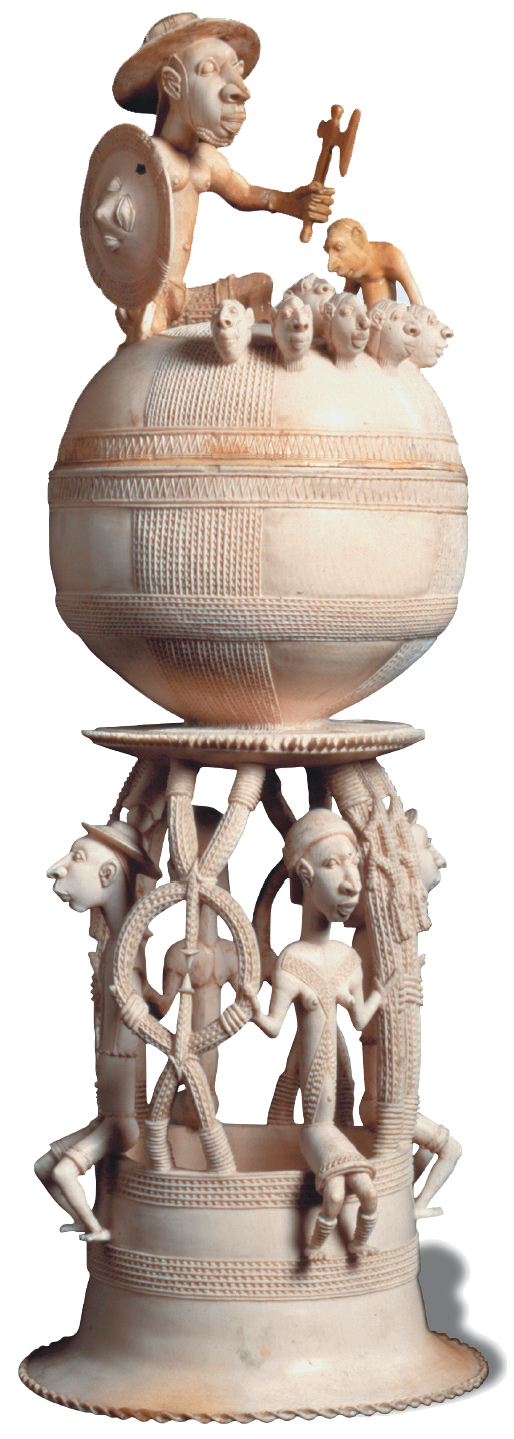A Century of Portuguese Exploration.
Printed Page 30 Chapter Chronology
A Century of Portuguese Exploration. With only 2 percent of the population of Christian Europe, Portugal devoted far more energy and wealth to the geographic exploration of the world between 1415 and 1460 than all other European countries combined. As a Christian kingdom, Portugal cooperated with Spain in the Reconquest, the centuries-long drive to expel the Muslims from the Iberian Peninsula. The religious zeal that propelled the Reconquest also justified expansion into what the Portuguese considered heathen lands.
Reconquest
The centuries-long drive to expel Muslims from the Iberian Peninsula undertaken by the Christian kingdoms of Spain and Portugal. The military victories of the Reconquest helped the Portuguese gain greater access to sea routes.

The most influential advocate of Portuguese exploration was Prince Henry the Navigator, son of the Portuguese king. From 1415 until his death in 1460, Henry collected the latest information about sailing techniques and geography, supported new crusades against the Muslims, sought fresh sources of trade to fatten Portuguese pocketbooks, and pushed explorers to go farther still.
Neither the Portuguese nor anybody else in Europe knew the immensity of Africa or the length of its coastline, which fronted the Atlantic for more than seven thousand miles. At first, Portuguese mariners cautiously hugged the west coast of Africa, seldom venturing beyond sight of land. By 1434, they had reached the northern edge of the Sahara Desert, where they learned to ride strong westerly currents before catching favorable easterly winds that turned them back toward land, which allowed them to reach Cape Verde by 1444.
To stow the supplies necessary for long sea voyages and to withstand the battering of waves in the open ocean, the Portuguese developed the caravel, a fast, sturdy ship that became explorers’ vessel of choice. In caravels, Portuguese mariners sailed into and around the Gulf of Guinea and as far south as the Congo by 1480.
Fierce African resistance confined Portuguese expeditions to coastal trading posts, where they bartered successfully for gold, slaves, and ivory. Powerful African kingdoms welcomed Portuguese trading ships loaded with iron goods, weapons, textiles, and ornamental shells. Portuguese merchants learned that establishing relatively peaceful trading posts on the coast offered more profit than attempting violent conquest and colonization of inland regions. In the 1460s, the Portuguese used African slaves to develop sugar plantations on the Cape Verde Islands, inaugurating an association between enslaved Africans and plantation labor that would be transplanted to the New World in the centuries to come.
About 1480, Portuguese explorers, eager to bypass the Mediterranean merchants, began a conscious search for a sea route to Asia. In 1488, Bartolomeu Dias sailed around the Cape of Good Hope at the southern tip of Africa and hurried back to Lisbon with the exciting news that it appeared to be possible to sail on to India and China. In 1498, after ten years of careful preparation, Vasco da Gama commanded the first Portuguese fleet to sail to India. Portugal quickly capitalized on the commercial potential of da Gama’s new sea route. By the early sixteenth century, the Portuguese controlled a far-flung commercial empire in India, Indonesia, and China (collectively referred to as the East Indies). Their new sea route to the East eliminated overland travel and allowed Portuguese merchants to charge much lower prices for the Eastern goods they imported.
Portugal’s African explorations during the fifteenth century broke the monopoly of the old Mediterranean trade with the East, dramatically expanded the world known to Europeans, established a network of Portuguese outposts in Africa and Asia, and developed methods of sailing the high seas that Columbus employed on his revolutionary voyage west.